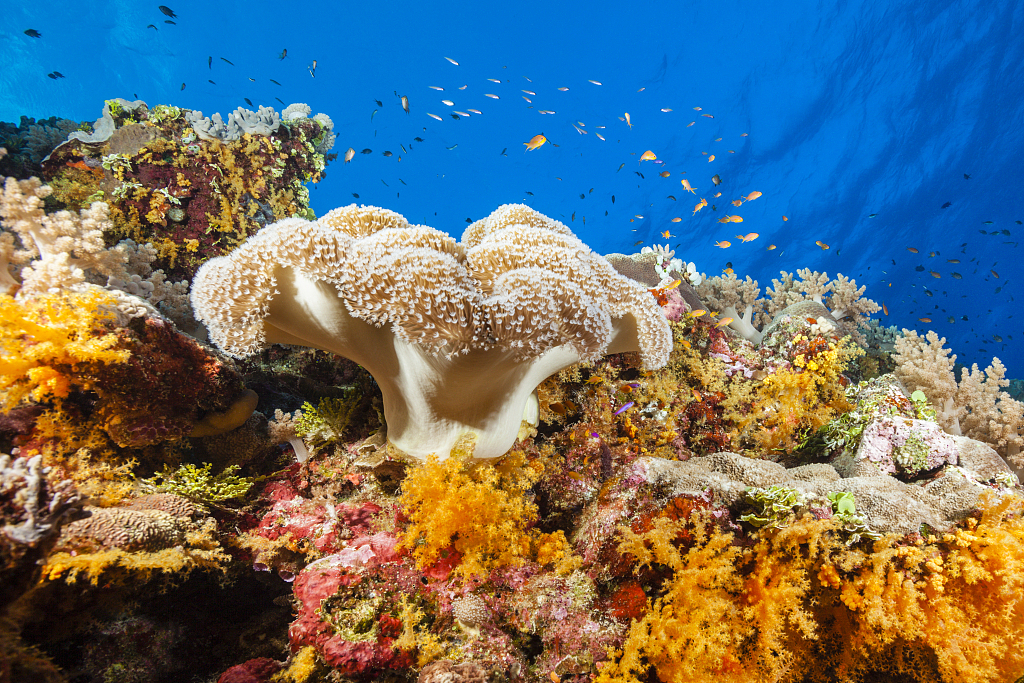
File photo: CGTN
SYDNEY, Feb. 25 (Xinhua) -- Higher than average ocean temperatures have put Australia's iconic Great Barrier Reef on the brink of a severe coral bleaching event, the Australian Institute of Marine Science (AIMS) has warned on Tuesday.
Recording an increase of 1.0 to 2.5 degrees centigrade in recent weeks, AIMS Oceanographer Craig Steinberg said the World Heritage Listed Area is now facing an enormous threat.
"Our knowledge and long-term understanding of northern Australian waters tell us warming oceans place enormous pressure on the reef's ecology," he explained.
"If heatwave conditions persist or worsen, we can expect corals to exhibit stress and experience some level of regional bleaching."
Causing the corals to expel algae from their tissue and turn white, the process can then lead to stagnant growth rates, decreased reproductive capacity, increased susceptibility to diseases and a declines in genetic and species diversity.
Using satellites, weather stations and even an in-water autonomous robot to monitor ocean temperatures in real time, there is also a network of 170 electronic temperature loggers which have been deployed across the 350,000 square km reef.
"We have re-deployed an Integrated Marine Observing System (IMOS) underwater glider to areas of concern in the waters north-east of Townsville," Steinberg said.
"With its on-board sensors, the glider provides our scientists with information about ocean properties at different depths of the water column including temperature and light, to help explain any observed levels of coral bleaching."
"Knowing how deep the warm surface layer is, can help determine the depth corals are likely to experience heat stress."
Describing the situation as being "on a knife's edge," AIMS Chief Executive Officer Dr. Paul Hardisty said the underlying trend of ocean warming means the chance of coral bleaching events has greatly increased over recent years.
"The next major El Niño event, which typically results in warmer sea temperatures on the reef at this critical time of year, poses a real risk for the reef. We need to be prepared as oceans continue to warm," he said.
"The scale and severity of the bleaching damage in 2016 and 2017 highlighted the critical threat warming ocean temperatures pose to coral reefs."
Typically taking around a decade for corals to recover from a bleaching event, Hardisty said without a reduction of global temperatures, the health of the reef is expected to continue to decline.
"If we want to safeguard coral reefs for the future, we also need to begin developing options for intervening on the Great Barrier Reef to help it cope better with climate change, in conjunction with reducing global greenhouse gas emissions," he said.


